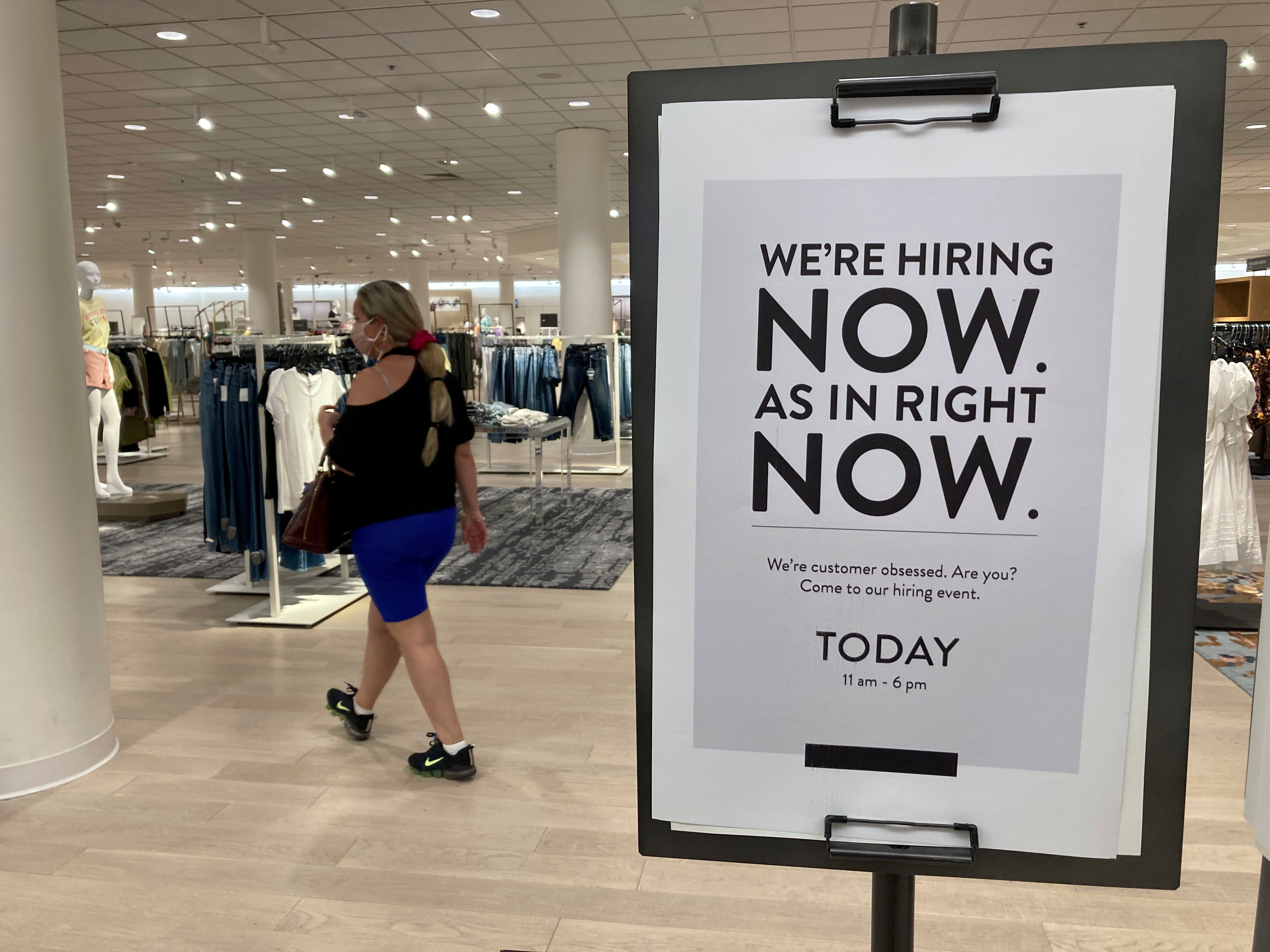Millennial Money: It’s time for better employee benefits
Health insurance, paid vacation and retirement tools should be the baseline, not the bar, for employer-provided benefits

Your support helps us to tell the story
From reproductive rights to climate change to Big Tech, The Independent is on the ground when the story is developing. Whether it's investigating the financials of Elon Musk's pro-Trump PAC or producing our latest documentary, 'The A Word', which shines a light on the American women fighting for reproductive rights, we know how important it is to parse out the facts from the messaging.
At such a critical moment in US history, we need reporters on the ground. Your donation allows us to keep sending journalists to speak to both sides of the story.
The Independent is trusted by Americans across the entire political spectrum. And unlike many other quality news outlets, we choose not to lock Americans out of our reporting and analysis with paywalls. We believe quality journalism should be available to everyone, paid for by those who can afford it.
Your support makes all the difference.Vaccination rates are climbing and employers are rolling out back-to-office, back-to-normal plans. But some employees may want a new normal — one that includes flexible scheduling and benefits that align with their needs and values.
“Expectations have changed. They were already changing, but with COVID-19, the how and where and why we work have all been transformed,” says Erika Illiano , a principal at Strategic Benefit Advisors, a member company of Brown & Brown Insurance.
Social justice issues amplified over the past year have also prompted some people to expect more from their employers.
“We are all, as human beings, more acutely aware of the world that we live in. That is absolutely spilling over into the workplace and impacting our expectations of what corporate citizenship looks like. Benefits are a part of that,” Illiano says.
PUSHING FOR CHANGE
Health insurance, paid vacation and retirement tools should be the baseline, not the bar, for employer-provided benefits. Employees want benefits that meet their needs, not the needs of previous generations.
Benefits that reflect the times include tuition stipends, student loan repayment assistance, remote work, mental health resources and other wellness benefits.
Any offerings also need to be viewed through the lens of diversity, equity and inclusion, Illiano says.
“Millennials more than any other generation in the workforce, they expect it,” she says. “If you’re designing a medical/leave program that’s inclusive, ask yourself: Is your paternity leave as long as your maternity leave? If not, why? Are you offering leave to just birth parents? What about domestic partners? Adoptive parents?”
If you need more from your employer’s benefits, you can and should ask for it. Just be strategic in how you make the case.
— GO IN WITH DATA. Asking for a new perk? Bring numbers to back up your request.
If you’re advocating for paid time off to volunteer, for example, build the case by noting that 26% of companies offer this benefit, according to a 2019 report by the Society for Human Resource Management. (Even better, find out if any competitors offer the benefit you’re seeking.)
Want your company to consider student loan repayment stipends? Point out that 34% of employees said they would be more likely to stay at their job if their employer offered student loan assistance, according to a May 2020 survey by Gift of College, a crowdfunding platform .
If you don’t have compelling data to back you up, bring it back to your company’s mission and values statements.
— HAVE A PLAN FOR THE “NO.” Your ask may not be greenlit right off the bat. If your request is shot down, try to understand the reasoning behind the “no.”
“Is it a ‘no’ because of budget? Because no one has raised it before and they don’t believe it’s a need? Or are they planning to allocate money to areas that would also be beneficial?” Illiano says. “That would dictate your next move.”
If your employer doesn’t believe it’s a widespread need, survey your colleagues or circulate a petition to bring to your human resources department. If money has been allocated elsewhere, find out when your company revisits benefits each year and make a plan to restate your case.
— GET A SEAT AT THE TABLE. Does your company have a committee or resource group that advises the benefits team? If so, ask for a seat at the table. If not, suggest creating one and offer to recruit a diverse group of employees to participate.
You’ll show you’re interested in improving the company’s overall benefits program, rather than securing a one-off perk for yourself. You’ll also gain insight into how benefit decisions are made at the company.
EMPLOYERS: HEAR YOUR PEOPLE OUT
Employers who are ahead of the curve with benefits may have an edge in recruiting and retaining employees.
“People’s relationship to work has changed. That’s going to create a competition for talent that is truly unique,” Illiano says, adding that employers need to “make sure they’re offering dynamic, competitive benefits that appeal to a more modern workforce.”
But don’t wait for your employees to come to you. Be proactive and seek feedback from employee resource groups and through annual surveys.
If a new benefit doesn’t fit into your balance sheet, look at ways to make existing benefits more accessible, says Beth Garner, national practice leader for the Employee Benefit Plan audit practice at BDO , a business accounting and advisory firm .
“Simple changes like ensuring plan information is accessible on a mobile device or making it easier for new employees to roll over a previous employer’s retirement plan can help,” Garner says.
__________________________
This column was provided to The Associated Press by the personal finance website NerdWallet. Kelsey Sheehy is a writer at NerdWallet. Email: ksheehy@nerdwallet.com. Twitter: @kelseylsheehy.
RELATED LINKS:
NerdWallet: 12 companies that pay off student loans http://bit.ly/nerdwallet-12-companies